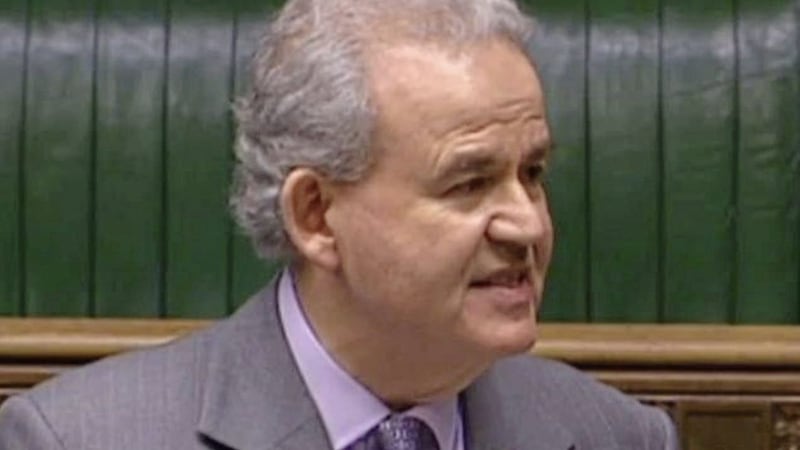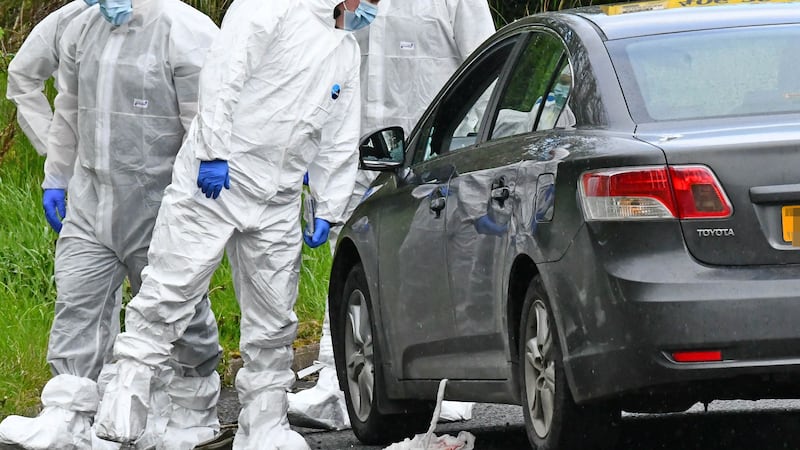A WESTMINSTER committee has urged the next British prime minister to legislate to end the "ridiculous charade" of "vexatious" and repeated investigations into alleged historical offences by British soldiers.
The Commons Defence Select Committee has called on the next government to bring forward proposals for a "presumption against prosecution" for alleged offences in operations overseas in the form of a draft bill.
In its report entitled Drawing A Line: Protecting Veterans By A Statute Of Limitations, the 11 MPs, which include the DUP's Gavin Robinson, warned that repeated investigations risk undermining morale within the British armed forces, as well as trust in the rule of law.
Recently published responses to the British government's consultation on legislation for dealing with the legacy of the Troubles showed a clear majority of the 17,000 respondents were opposed to a statute of limitations or amnesty.
While the committee stated that British troops are not above the law, they said there is "something fundamentally wrong when veterans and current service personnel can be investigated and exonerated, only then to become trapped in a cycle of endless re-investigation".
"We warn that this state of affairs risks undermining not only morale within the armed forces, and the potential for future recruitment, but also trust in the rule of law," they said.
The committee welcomed plans put forward by defence secretary Penny Mordaunt to create a "statutory presumption" against prosecution of current or former personnel for alleged offences committed in the course of duty abroad more than 10 years ago.
The legislation, which is subject to public consultation, will stipulate that such prosecutions are not in the public interest unless there are "exceptional circumstances", such as if compelling new evidence emerged.
But the committee – whose report covers legacy investigations in Afghanistan, Iraq and Northern Ireland – said they were concerned the proposal will not cover soldiers who served during the Troubles.
They said: "We also recommend that, as part of its planned consultation process, the government should bring forward its proposals in the form of a draft bill and that this should be made available to us for pre-legislative scrutiny."
Committee chairman and Tory MP Julian Lewis said: "We believe in what we term a 'Qualified Statute of Limitations' – one that draws a line after a decade has elapsed unless compelling new evidence can be produced.
"To meet the requirements of international law that adequate investigation must have taken place, this process could include a truth recovery process where evidence can be taken, without threat of prosecution, finally to uncover the facts."
Conservative committee member Johnny Mercer – a former British army officer – added: "The time for successive secretaries of state to put this issue in the 'too difficult' box has officially passed with the conclusions of this report.
"There are options available to end what I consider one of the greatest injustices we self-inflict upon those who serve.
"I and others fully expect the next prime minister to end this ridiculous charade and legislate to prevent abuses of the legal system by those who seek to rewrite history."
A Ministry of Defence spokesman said: "Noone wants to see our brave personnel subjected to repeated investigations about historical offences, which is why we are launching a consultation today on proposals for providing legal protections for serving and former armed forces personnel.
"The consultation will also propose introducing an absolute time limit for bringing civil litigation claims against the Government, allowing a line to be drawn under claims for historical incidents overseas once and for all."
The new prime minister – either Boris Johnson or Jeremy Hunt – will enter Downing Street on Wednesday following the result of the Tory leadership contest.







